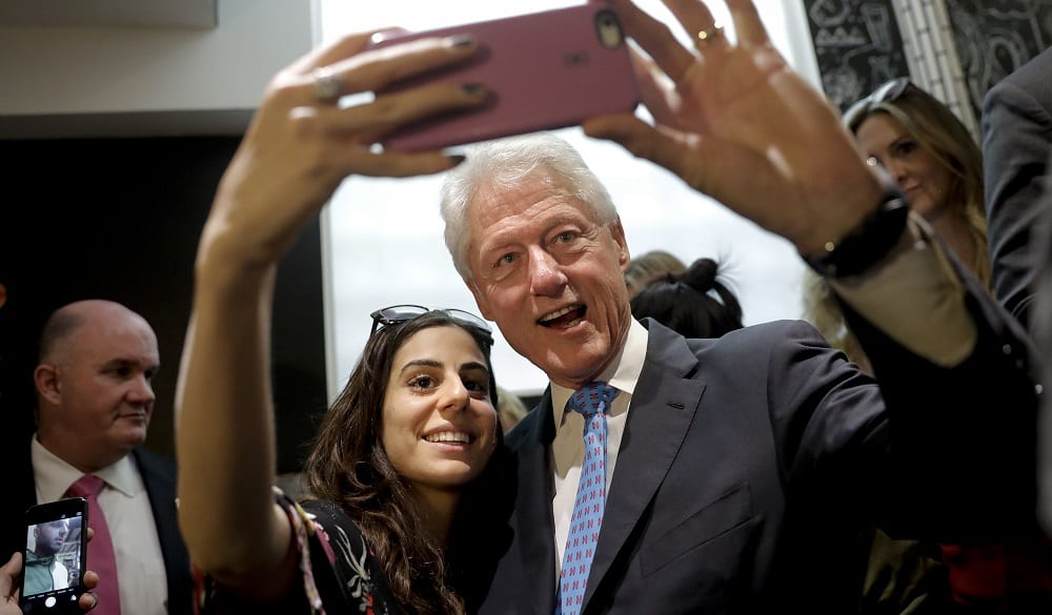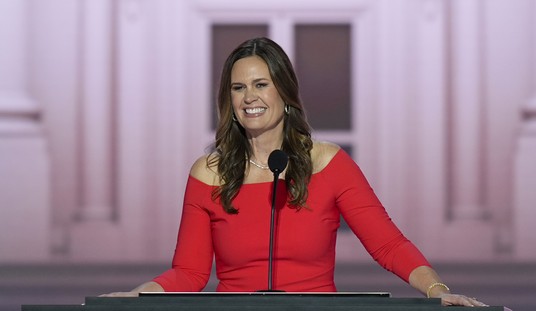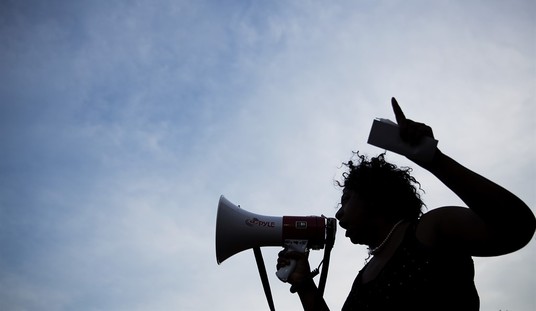When the New York Times report outing Harvey Weinstein as a serial sexual harasser and abuser was released, we all knew it was a big story and would lead the news cycle for, well, at least a few days. But as victim after victim came forward with disgusting stories of his perversion and industry insiders said, “We all knew; it was an open secret,” the story’s legs grew.
People outside of Hollywood were shocked at the level of depravity Weinstein’s behavior demonstrated, and that an industry so vocal about feminism and women’s rights would turn a blind eye for so long.
The enormity of the Weinstein scandal is absolutely horrific, and Hollywood’s hypocrisy isn’t a big surprise. Feminist hypocrisy and systematic sexual harassment runs just as rampant in politics. In the past week, hundreds of women lobbyists, staffers, and officeholders across the country have gone public with their experiences.
Perhaps finally this issue will be taken somewhat seriously, and we have the #MeToo hashtag to thank.
On October 18 a group of 140 women who work in California politics signed an open letter calling out “rampant” sexual harassment and abuse in Sacramento. Samantha Corbin, a lobbyist who helped coordinate the letter, said more women wanted to sign it, but were afraid of retaliation.
“Often these men hold our professional fates in their hands. They are bosses, gatekeepers, and contacts. Our relationships with them are crucial to our personal success,” they wrote. “We don’t want to jeopardize our future, make waves, or be labeled ‘crazy,’ ‘troublemaker,’ or ‘asking for it.’ Worse, we’re afraid when we speak up that no one will believe us, or we will be blacklisted.”
Their list [of harassing behaviors] is long and explicit: Groping. Touching. Inappropriate comments about bodies and abilities. Insults and sexual innuendo, frequently disguised as jokes. Promises and threats.
Two days ago, The Hill reported on rampant sexual harassment happening in state capitols. Then Tuesday a group of women working in Illinois politics, inspired by the California letter, released their own open letter giving examples of harassment women in that state have faced:
(It looks like) a male legislator, a chamber leader; asking a female staffer out to dinner under the guise of offering mentorship, then proceeding to explain his ‘open marriage’ to her and ask if she’s single.
In the Illinois letter, the authors propose more required sexual harassment training, a step I think will have exactly zero effect on the problem. Sexual harassment training has been around for years, and besides, basic human decency should prevent someone from using a position of power to demand or request sexual favors.
In California, the State Senate has hired an investigator to look into sexual harassment allegations and at least one lawmaker is under investigation for sexual assault.
Nothing will change, though, until the problem of retaliation is dealt with. Women who report sexual harassment – whether or not they “gave in” to the harasser’s advances, are targeted for professional and personal destruction. I know this first-hand because of what I experienced after I quietly brought an elected official’s bad behavior to party officials in an attempt to prevent him from doing it to other people or harming the party. (The story of my experiences will be posted later today.)
This brings me to the problem with bashing the #MeToo hashtag. When the hashtag campaign started, many on the conservative side bashed it, saying that type of activism doesn’t work and giving several “Yeah, but…” reasons to diminish it.
Yes, society at large objectifies women and is a massive contributor to the problem.
Yes, pop culture celebrates perverts like Hugh Hefner (who arguably was simply an out-in-the-open Harvey Weinstein), tacitly endorsing this abusive behavior.
Yes, men are victims, too.
Yes, there is a huge difference between sexual harassment and sexual abuse and the two should not be equated.
And yes, some malicious women falsely accuse men of sexual harassment.
But the point of #MeToo was to raise awareness of how widespread the problem is, period. The point was not to call attention to other, equally serious, problems. When a group attempts to co-opt or diminish something like #MeToo with “yeah, but’s” or their own agenda, they don’t bring positive attention to their cause. They just look like insensitive jackwagons. And no one wants to align with insensitive jackwagons.
In spite of the mocking and dismissal, a lot of good is coming from the #MeToo awareness campaign. Women in Hollywood, media, and politics (and other industries, to be sure) are saying: “Enough.”














Join the conversation as a VIP Member